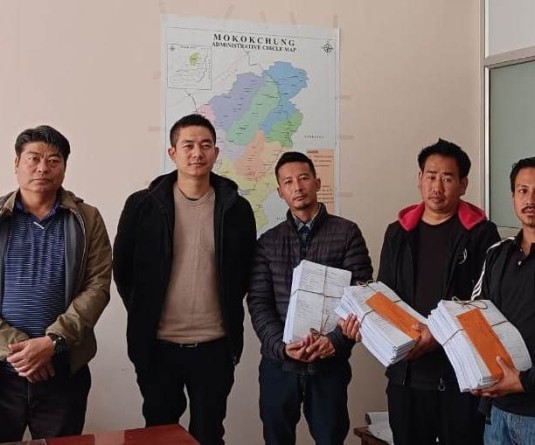
DIMAPUR, OCTOBER 21 (MExN): The Nagaland Power Department has stated that with the country facing an energy crisis, “We have no options but adoption in the shift of metering policy to prepaid meters.”
In a press release, the Executive Engineer, Dimapur Electrical Division, Er Y Akito Sema said that the people in the State have to act on ways to conserve energy. “With Nagaland having a meager generating capacity of 26.54 MW there is no alternative but to conserve energy,” he stated.
He informed that in Nagaland, domestic consumption accounts for approximately 80% of usage. Apart from indirect energy used in production of household items, energy is directly used for cooling and heating, refrigerating, cooking, laundry, lighting and operation of household appliances/gadgets.
The Executive Engineer said that the present revenue collection is inefficient and there is high customer debt burden in Nagland due to illegal and rampant use of power by means of theft of energy in the form of hooking, tampering of Energy Meters and By-passing of Energy meters.
“There is another major factor affecting the Department of Power and that is energy losses and growing customer dissatisfaction due to the erroneous meter reading or no meter reading, estimated/wrong billing and abysmal service delivery leading to heavy loss in the revenue collection,” he pointed out.
As such, the department said that adoption of pre-paid metering, especially the prepaid smart meters, has benefits not only in the revenue collection aspects but the following benefits are in expectations. These include carbon emission reductions, more efficient and transparent energy management services, energy savings, elimination of estimated billing, reduced home visits.
“Ultimately, it is expected to put the consumer in control of energy consumption. With this energy consumption under your control the life of your electrical appliances/gadgets is expected to rise which will account for a great saving surpassing the cost of energy charges that has been paid,” the Executive Engineer said.
He further reasoned that the burden on the distribution transformers will be greatly reduced; hence power outages will be reduced due to fuse getting blown off and the need for frequent maintenance of distribution transformers and the distribution network will lessen.
Benefits of pre-paid metering
Pay-as-you-go system: It will allow customer to buy electricity as and when is required.
No standing in long queues: Flexibility of purchasing electricity online and would thus obviate consumers from standing in long queues for paying electricity bills.
Allows consumer to budget: Empower customers to understand cost of energy and enable them to budget their usage in accordance with their financial position and lifestyle.
Display of remaining credit: Prepaid meters have provision to display actual remaining credit in money value as well as the total kWh consumption. This will put consumers in the position to manage their energy purchase to suit their requirements. Since the meter displays credit instead of energy units it is easy for the consumer to co-relate the tariff with his expenditure.
Help become energy conscious: A large percentage of the populations are often not aware of the effect of abuse of electricity and the environmental impact it has on community. Because both the remaining units and the consumption rate are displayed, consumer can adapt to become energy conscious.
No more unwanted bills: Consumers will no longer be served with minimum bills for non-consuming period. The present billing system bills the consumer as per the connected load even during the non usage period. Electricity will be active as long as one has credit, and during absence there will be no more minimum bill issues.
No more Tension: Consumers don’t have to worry for erroneous bill due to wrong meter reading or estimated /average bills.
The department has appealed for the people’s cooperation in this transition of pre-paid energy metering system to improve power stability by saving energy and also avoid the problem of wrong billing and poor bill delivery system.
Source: Department of Power






